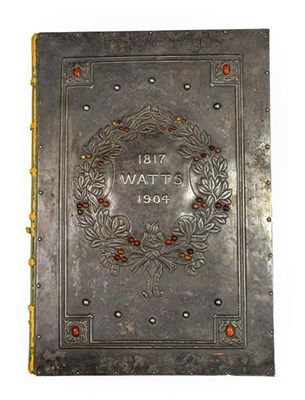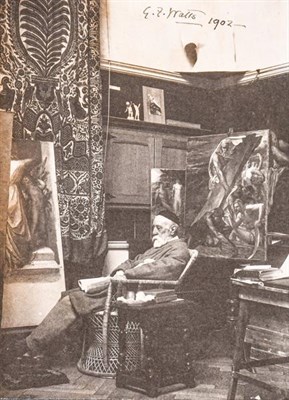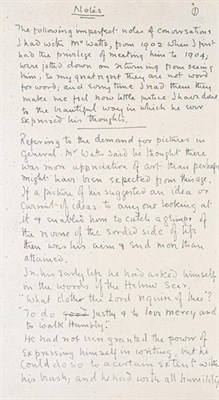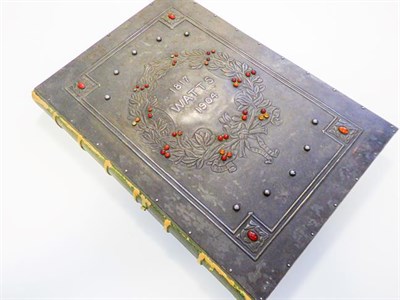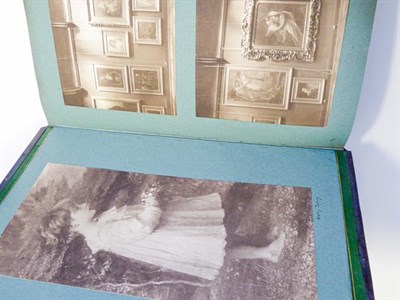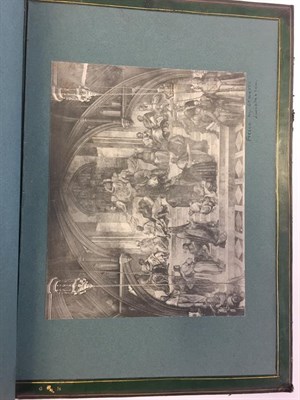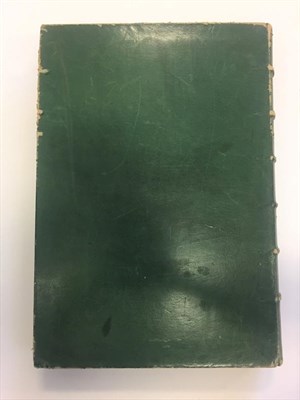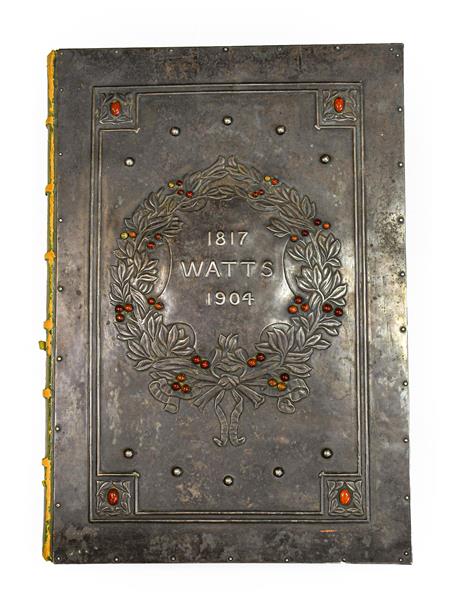28th Jul, 2021 10:30 GMT/BST
Books, Maps & Manuscripts
167
Watts (George Frederic, 1817-1904). Memorial volume produced by Christopher Hatton Turner...
Watts (George Frederic, 1817-1904). Memorial volume produced by Christopher Hatton Turner (1873-1940), architect of the Watts Gallery, c.1904. Folio (400 x 270 mm), finely bound by the Guild of Handicraft in green sheep (with their stamp gilt to rear turn-in), pewter panel mounted to front cover with elaborate repoussé decoration comprising outer frame with foliate cornerpieces around central laurel wreath enclosing lettering '1817 Watts 1904', numerous red and orange glass cabochons inset, 100 heavy blue-green wove paper leaves, with various material mounted to rectos and versos including 5 photographs of the interior of the Watts Gallery and 4 portrait photographs of G. F. Watts (probably platinum prints), one of the portraits signed by Watts in black ink ('G. F. Watts, 1902'), another (depicting Watts at work on his statue of Tennyson) annotated on mount 'September 1903, C Turnor phot.', 18 numbered leaves of manuscript notes by Turnor (beginning 'The following imperfect notes of conversations I had with Mr Watts, from 1902 when I first had the privilege of meeting him to 1904 ...'), and about 50 prints of paintings by Watts (mixed media), many leaves left blank, spine slightly sunned, rubbing and some stripping to spine-bands, joints and board-edges (qty: 1) Christopher Hatton Turnor (1873-1940) was a relatively inexperienced young architect living near Compton with his parents when he was selected by Watts to design what became the Watts Gallery; the choice was evidently informed by the artist's Arts and Crafts ethos of working with local craftsmen and designers. Turnor's design was inspired by Voysey and Lutyens, and Watts lived just long enough to see the finished product, dying on 1 July 1904 three months after its completion. Turnor had unexpectedly succeeded to the family estate at Stoke Rochford, Lincolnshire, in 1903, and went on to become an ardent campaigner for rural reform. 'Unlike many of his contemporaries Turnor was not prepared simply to enjoy the social amenities of his new position or to accept the prevailing view that there was little future for British agriculture. Instead, committed to the belief that land ownership was a trust, he helped to pioneer a new and more dynamic approach to estate management' (ODNB).
Sold for £900
Estimated at £1,000 - £1,500
Auction: Books, Maps & Manuscripts, 28th Jul, 2021
Books, Maps & Manuscripts
Sell one like this
If you've got a similar item to sell, complete the valuation form below and one of our experts will get in touch.
